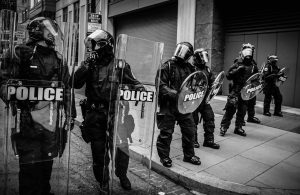 Chicago is a city that has long been criticized for failing on transparency, accountability, and justice issues. Some of these criticisms are not based on fact but are rather like urban myths. They grow and have lives of their own, the facts of the matter being largely inconsequential. The city has adopted a unique approach that takes into consideration the views and perspectives of those who work within the criminal justice system. Hence, there are proposals for a sitting or retired judge to oversee the entire process. This inclusive approach brings the police into the fold rather than treating them as sworn enemies of civil liberties.
Chicago is a city that has long been criticized for failing on transparency, accountability, and justice issues. Some of these criticisms are not based on fact but are rather like urban myths. They grow and have lives of their own, the facts of the matter being largely inconsequential. The city has adopted a unique approach that takes into consideration the views and perspectives of those who work within the criminal justice system. Hence, there are proposals for a sitting or retired judge to oversee the entire process. This inclusive approach brings the police into the fold rather than treating them as sworn enemies of civil liberties.
Other cities have a somewhat different approach to reform. They consider their own law enforcement agencies to be fundamentally anti-people. Therefore, the reform process is necessarily imposed on them rather than being a natural progression towards organizational development. In this case, the format is that of a public inquiry with all the requisite appearance of interrogations and investigations.
Not surprisingly, some members of the Chicago police forces are not entirely pleased with the latter approach. They believe that they too are part of the reform agenda and desire to provide high-quality services to the citizenry. Even when mistakes are made, they are nothing more than that. It is not a case of corrupt agencies taking away the rights of the people.
A Possible Way Forward
A compromise deal was suggested and supported by the serving mayor Rahm Emanuel. This model focuses a lot on monitoring and evaluation. In other words, standards are set for the law enforcement agencies, and there is an independent body that is supposed to raise regular reports on the extent to which the agencies are in compliance with the spirit of the law. This seemingly tidy arrangement sidesteps the courts as the main arbitrators of the judicial system. Some may miss the sober assessments arising out of judicial oversight.
At the same time, it must be recognized that many of the communities that are on the receiving end of police incompetence and police aggression have seen it all before. They have lived through commissions of inquiry and media outrages. They have seen serving officers who have killed people and seemingly got away with it. They are the visible and invisible victims of a justice system that at times appears to be losing its way. One cannot help sympathizing with them when they dismiss the latest oversight body as nothing more than a smokescreen for multiple cover-ups.
Going Back to Old Formulas
There are good reasons why the law enforcement agencies operate under a labyrinth of guidelines. The rationale is that if you follow the rules, you are unlikely to go wrong. Unfortunately, experience has shown that following the rules in a perfunctory manner can have as bad an effect as not following them at all. It is not enough for the police to be able to fill out forms stating that they are doing their jobs. The public must experience the real benefits of a changed law enforcement culture.
One of the key aspects of this change is to ensure that policing is part of the community, bearing in mind the role of activists in implementing change. The officers must come from the community that they police, and they must remain accountable to that community. Community policing has been a mantra that has been adopted by some of the most corrupt regimes in the world. Whereas Chicago is a long way away from those despotic regimes, it still has work to do in terms of giving reality to the dream of a responsive and responsible law enforcement framework. For help with your case in police reform law, contact David Freidberg Attorney at Law at 312-560-7100.
(image courtesy of Spenser H.)
 Chicago Criminal Lawyer Blog
Chicago Criminal Lawyer Blog


